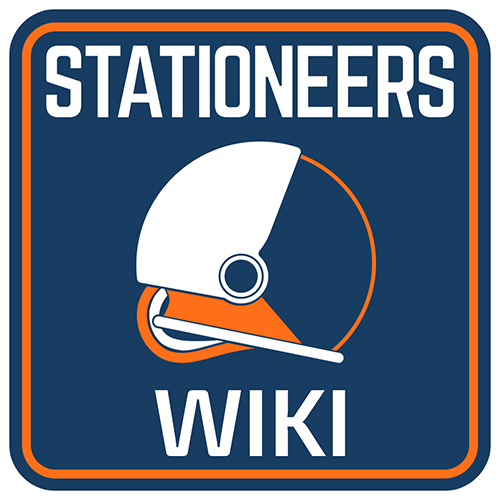Editing SystemD Server Guide
Warning: You are not logged in. Your IP address will be publicly visible if you make any edits. If you log in or create an account, your edits will be attributed to your username, along with other benefits.
The edit can be undone.
Please check the comparison below to verify that this is what you want to do, and then save the changes below to finish undoing the edit.
| Latest revision | Your text | ||
| Line 1: | Line 1: | ||
| − | + | [Category:Tutorials]] | |
== Requirements == | == Requirements == | ||
| Line 10: | Line 10: | ||
To maximize server security, we will be setting up a dedicated user that only has the privileges to run the dedicated server, and nothing else. | To maximize server security, we will be setting up a dedicated user that only has the privileges to run the dedicated server, and nothing else. | ||
| − | <code>sudo useradd -m | + | <code>sudo useradd -m stationeers</code> |
| + | |||
| + | We won't need to log in with the user at all, so to increase security even more, let's prevent anyone from logging in with the user. | ||
| + | |||
| + | <code>sudo nano /etc/passwd</code> | ||
| + | |||
| + | Find the line that starts with <code>stationeers:x:</code> (it's most likely the last line in the file). Replace the path at the end of this line (probably says <code>/bin/bash</code>) with <code>/sbin/nologin</code>. | ||
== Installing SteamCmd == | == Installing SteamCmd == | ||
| Line 45: | Line 51: | ||
<code>ExecStart</code> starts the Stationeers dedicated server. Be sure to replace all the UPPERCASE entries with what you want for your server. See here: https://github.com/rocket2guns/StationeersDedicatedServerGuide/blob/main/README.md<br> | <code>ExecStart</code> starts the Stationeers dedicated server. Be sure to replace all the UPPERCASE entries with what you want for your server. See here: https://github.com/rocket2guns/StationeersDedicatedServerGuide/blob/main/README.md<br> | ||
<code>User</code> and <code>Group</code> ensures that the dedicated server runs with the user we set up earlier.<br> | <code>User</code> and <code>Group</code> ensures that the dedicated server runs with the user we set up earlier.<br> | ||
| − | <code>StandardOutput=journal</code> directs all log-messages to the system journal. If something goes wrong, you don't have to locate any log-files, you just run the command <code>journalctl -fu stationeers</code> to browse the journal for what | + | <code>StandardOutput=journal</code> directs all log-messages to the system journal. If something goes wrong, you don't have to locate any log-files, you just run the command <code>journalctl -fu stationeers</code> to browse the journal for what service </code>stationeers</code> has output.<br> |
<code>Restart=on-failure</code> ensures that if the server crashes, it will automatically restart.<br> | <code>Restart=on-failure</code> ensures that if the server crashes, it will automatically restart.<br> | ||
<code>WorkingDirectory=/home/stationeers</code> makes sure that everything we do assumes that we're standing in this folder when we do it. It's kind of redundant here, but I keep it in for safety. | <code>WorkingDirectory=/home/stationeers</code> makes sure that everything we do assumes that we're standing in this folder when we do it. It's kind of redundant here, but I keep it in for safety. | ||
| Line 52: | Line 58: | ||
Now that we've created the service-file, we have to let SystemD know it's there. Run <code>sudo systemctl daemon-reload</code> to do that. Any time you edit the service-file, you have to run this command to make SystemD aware of the changes you've made. | Now that we've created the service-file, we have to let SystemD know it's there. Run <code>sudo systemctl daemon-reload</code> to do that. Any time you edit the service-file, you have to run this command to make SystemD aware of the changes you've made. | ||
| − | That's it! All we need to do now is run <code>sudo systemctl start stationeers</code>, and it will download Stationeers Dedicated Server, start it with the parameters we've set, and run until we either reboot the machine, or run <code>sudo systemctl stop stationeers</code> | + | That's it! All we need to do now is run <code>sudo systemctl start stationeers</code>, and it will download Stationeers Dedicated Server, start it with the parameters we've set, and run until we either reboot the machine, or run <code>sudo systemctl stop stationeers</code>. |
| − | |||
Want the dedicated server to start with the machine every time you reboot? Just run <code>sudo systemctl enable stationeers</code> to enable start-on-boot, and <code>sudo systemctl disable stationeers</code> to disable it again. | Want the dedicated server to start with the machine every time you reboot? Just run <code>sudo systemctl enable stationeers</code> to enable start-on-boot, and <code>sudo systemctl disable stationeers</code> to disable it again. | ||
